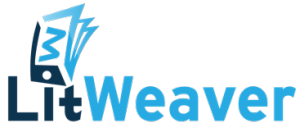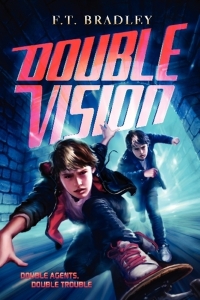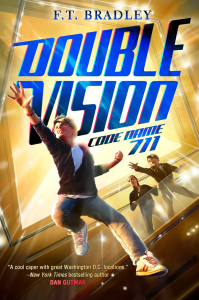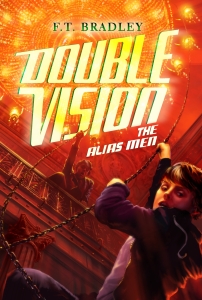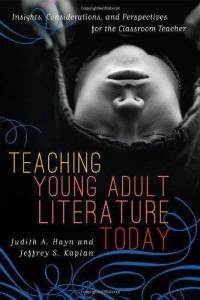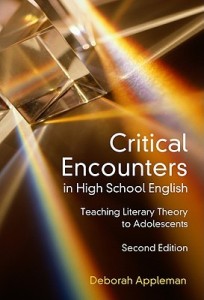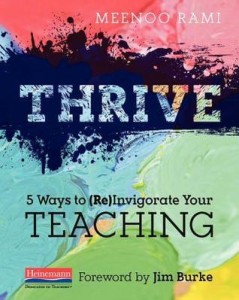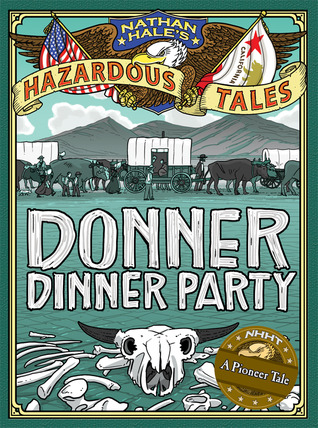
Top Ten Tuesday is an original feature/weekly meme created at The Broke and the Bookish. The feature was created because The Broke and Bookish are particularly fond of lists (as are we!). Each week a new Top Ten list topic is given and bloggers can participate.
Today’s Topic: Top Ten Professional Books
These are the professional books that have molded us as teachers. We tried to limit our list to just ten books each, but we couldn’t stop. So here are the top TWENTY professional books. We did our best not to repeat any texts.
Ricki
1. Making the Match: The Right Book for the Right Reader at the Right Time, Grades 4-12 by Teri Lesesne
If you want to help match students with books, this text is a must-have. It focus on three areas—knowing the readers, knowing the books, and knowing the strategies. Making the Match represents everything I believe about teaching. Even though I felt that I was experienced at matching books with readers, it gave me so many new ideas to try!
2. Readicide by Kelly Gallagher
As I read this book, I kept saying, “YES!” out loud. A fairly quick read, Readicide uses research to prove why we are systematically killing the love of reading in schools. The evidence is overwhelming.
3. In the Middle: New Understandings about Writing, Reading, and Learning by Nancie Atwell
I read this book in college and constantly used the ideas in my classroom. I can’t say enough positive things about the value of reading and writing workshops (both of which are promoted in this text). Atwell made me want to open my own school! This book is chockfull of mini-lessons and ideas for teachers. It is a very practical, useful guide.
4. The English Teacher’s Companion: A Complete Guide to Classroom, Curriculum, and the Profession by Jim Burke
When I read this in college, I had to go out and buy a new highlighter. It was like a bible to me because it had so many ideas. Whenever I felt down or discouraged while teaching, I would flip through this book and feel like I just came back from NCTE. There are so many great strategies and teaching ideas that you will feel reinvigorated every time you open it.
5. Black Ants and Buddhists: Thinking Critically and Teaching Differently in the Primary Grades by Mary Cowhey
This book is written for elementary school teachers, but as a high school teacher, I learned a lot. Cowhey gives real classroom examples of how she promotes social justice, action, and independence in the classroom. I use this text to teach my students who are pre-service elementary school teachers, and they love it.
6. When Kids Can’t Read: What Teachers Can Do About It by Kylene Beers
This is my go-to book for struggling readers. It is a phenomenal resource and is incredibly helpful for those moments when a student reads a passage, turns to you and says, “I don’t get it.”
7. Culturally Responsive Teaching: Theory, Research, and Practice by Geneva Gay
Geneva Gay’s writing is very well-researched and thoughtful. She gives very useful tools for responding to all of the cultures in our classrooms. I highly recommend this text to teachers. I couldn’t stop highlighting!
8. Commando Classics: A Field Manual for Helping Teens Understand (And Maybe Even Enjoy) Classic Literature
Daria Plumb’s approach to classic literature is accessible and exciting. I love the text sets she provides. They are invaluable for teachers.
9. Reading Ladders by Teri Lesesne
I can’t help but repeat this one from Kellee’s list. It is a fantastic resource for teachers who want to challenge their students while still granting them freedom as they read.
10. Experience and Education by John Dewey
This is where it all began, isn’t it? Written in 1938, this book is lightyears before its time. Dewey is a foundational thinker who changed education today. It is not a surprise that he is continually cited for his good work.
Kellee
1. The Book Whisperer by Donalyn Miller
I thank this book, and its author, for helping me reform my teaching and focus on what is important.
2. Reading Ladders by Teri Lesesne
Reading ladders have been something I think about constantly when working with my struggling readers (I am a reading coach and taught intensive reading). I find out where the students are and using the idea of Lesesne’s ladders, I work on moving them up.
3. Pedagogy of Freedom: Ethics, Democracy, and Civic Courage by Paulo Freire
Although Freire’s theories seem like fantasy, they are the utopia that I wish we had here in America’s school system.
4. Teaching With the Brain in Mind by Eric Jensen
This text is important for all teachers to read, so they learn specifically how to reach their students.
5. A Framework for Understanding Poverty by Ruby Payne
This one is specifically important for teachers who grew up out of poverty. It gives a better sense of addressing students living in poverty.
6. Book Love by Penny Kittle
The Book Whisperer for high school. I love that it shows that the same ideas Donalyn laid out can be applied to secondary education.
7. Thrive by Meenoo Rami
I read this right when I was returning from maternity leave, and it was just what I needed.
8. How to Differentiate in a Mixed-Ability Classroom by Carol Ann Tomlinson
If you teach in a mixed-ability classroom, differentiation is key to make sure each student gets the best education. Tomlinson’s ideas can be used within any curriculum.
9. Yellow Brick Roads: Shared and Guided Paths to Independent Reading 4-12 by Janet Allen
I read this in my young adult literature class. It is very practical for class and assessments.
10. The Reading Zone: How to Help Kids Become Skilled, Passionate, Habitual, Critical Readers by Nancie Atwell
The beginning of it all. I am always striving to do as Nancie would do.
What are your favorite professional development texts? Which did we miss?
 and
and 
